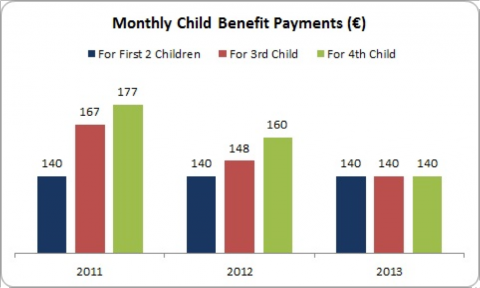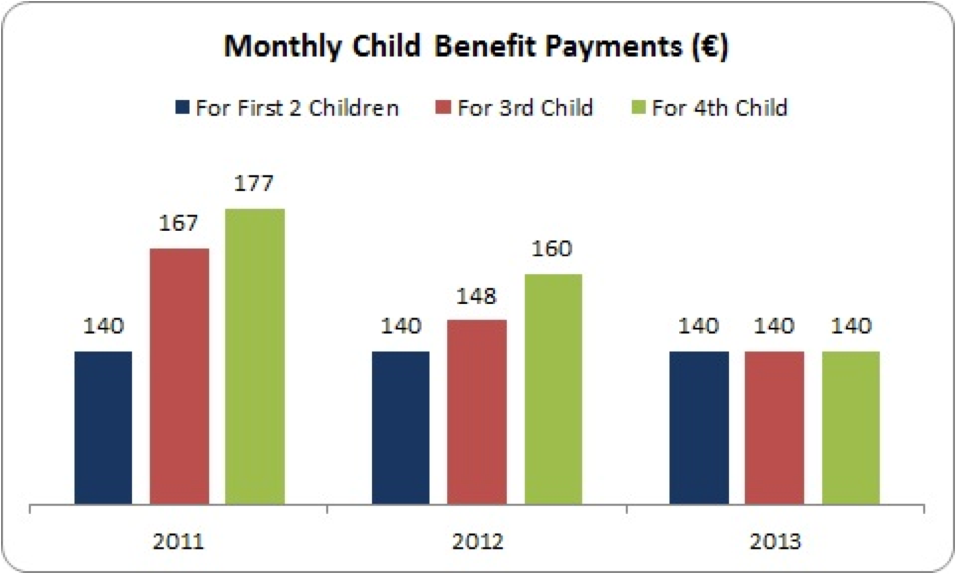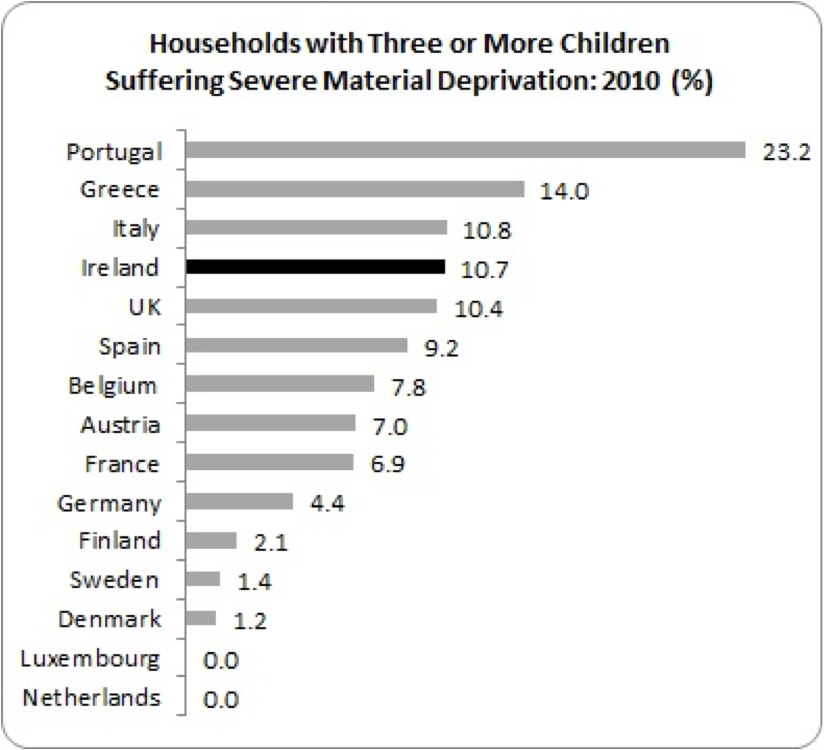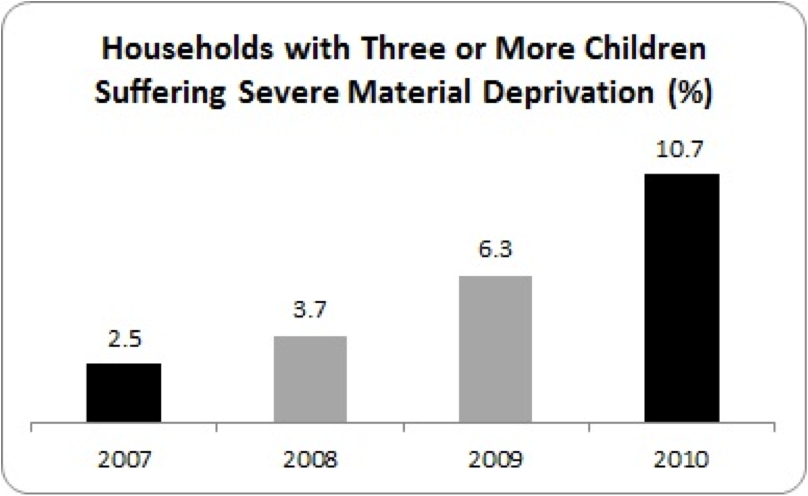They're already cutting child benefit

Over the next few weeks, when you hear commentators asking – “Will the Government cut child benefit?” – just remember: they're already cutting it. By Michael Taft.
According to leaks, the Government is apparently ‘considering’ proposals from a Department of Social Protection working group to reform child benefit payments. There is something profoundly manipulative about this debate. Only one part has been leaked – the overall cut. It would have been just as easy to leak the entire set of proposals. Partial leaks usually suggest there is an agenda at work. Given that parts of the proposals are in the public debate, the Department should now just publish the entire report so we can read, judge for ourselves and be part of the ‘consideration’.
That said, the media reports that the Government is considering cutting child benefit are not correct. The Government is already intending to cut child benefit. They announced it last year, started it last year and intend to continue doing it next year. So the Government is not considering cutting child benefit. It is considering cutting more child benefit.
Last year, the Government announced its intention to eliminate the child benefit supplement to the third and additional child.
 The Government is already cutting child benefit. For households with three children, the Government intends to cut the supplement for the third child by 17% over two years and the supplement to the fourth child by 21%. And that’s on top of cuts that started since Budget 2010. So what has been the total level of cuts for larger families since the crisis began, factoring in the cuts the Government has already announced for next year?
The Government is already cutting child benefit. For households with three children, the Government intends to cut the supplement for the third child by 17% over two years and the supplement to the fourth child by 21%. And that’s on top of cuts that started since Budget 2010. So what has been the total level of cuts for larger families since the crisis began, factoring in the cuts the Government has already announced for next year?
Child benefits payment for households with more than two children will be cut by €63 a month for each child – or 31%.
That is a big, big hit. And that doesn’t count the abolition of the Early Childcare Supplement – which had nothing to do with childcare; it was essentially a child benefit supplement. This was worth €83 a month for families with young children.
All households have been hit by cuts in child benefit – but larger families have been hit the most. This goes a long way towards explaining the exponential rise in deprivation among larger families.
Let’s look at Eurostat’s measurement of severe material deprivation. This is a harsher measure than the CSO’s deprivation measurement. Under Eurostat, a household suffers from severe material deprivation if they cannot afford four of the following items:
- to pay their rent, mortgage or utility bills
- to keep their home adequately warm
- to face unexpected expenses
- to eat meat or proteins regularly
- to go on holiday
- a television set
- a washing machine
- a car
- a telephone
I don’t know about you, but I would find it terrible not to be able to afford one of the above. But four? This is truly a severe material deprivation rate.
So how do families with three children fare under this measurement?
 Ireland is grouped up at the top. 11% of households with three or more children suffer from severe deprivation. And let’s remember – that was in 2010. There have been cuts in child benefit and working age social welfare payments in Budget 2011 and cuts in large family supplements last year. And this doesn’t count falls in income, job loss, etc. There is every reason to believe that severe deprivation rate will be higher this year.
Ireland is grouped up at the top. 11% of households with three or more children suffer from severe deprivation. And let’s remember – that was in 2010. There have been cuts in child benefit and working age social welfare payments in Budget 2011 and cuts in large family supplements last year. And this doesn’t count falls in income, job loss, etc. There is every reason to believe that severe deprivation rate will be higher this year.
The growth in deprivation among large families has been exponential.
 Deprivation among large families has more than quadrupled since the crisis began. This will no doubt have increased again by this year.
Deprivation among large families has more than quadrupled since the crisis began. This will no doubt have increased again by this year.
The Government was aware of this data when they decided to cut child benefit for larger families. Why did they do it? Because large families are a small subset of all households with children. 77% of families receiving child benefit have fewer than three children. Therefore, they weren’t affected by the cuts. Indeed, they would have been, understandably, relieved that their payment wasn’t cut. By focusing on a portion of a payment that goes to a relatively small group with little political and economic influence (136,000 families) the Government was able to cut child benefit without incurring the political blow-back they would have if they had done it across the board. Some might say this was politically clever. Others might say it was cynical – especially as the group was targeted as the highest level of deprivation of all households with children.
So over the next few weeks, when you hear commentators asking – “Will the Government cut child benefit?” – just remember: they are already cutting it. And for a group that already suffers disproportionately from severe material deprivation.
